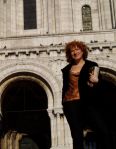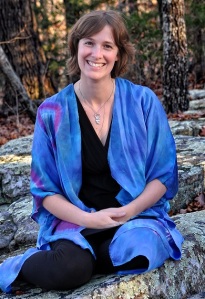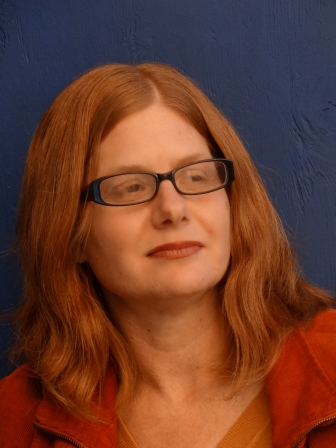 Amy Wright Glenn’s Birth, Breath, & Death: Meditations on Motherhood, Chaplaincy, and Life as a Doula is a mid-life memoir of the author’s personal encounters and professional insights drawn from her work in the spaces of birth and death. Glenn gleans from her formative experiences as a daughter and sister, her trained experiences as a teacher and doula, and her wisdom experiences as a mother, chaplain, and friend. In an accessible voice, Glenn reflects compassionately on her early life in a Mormon family. She considers critically the nature of religious worldviews that are doctrinally dualistic and apocalyptic. Glenn further describes the therapeutic and illuminating value she found in the scholarly study of religions as an anthropological phenomenon. Glenn explores how religious discourse both expresses human joy and grief and also aids us in our encounters with life and death. Glenn intertwines her academic study with personal narrative and achieves a professionally-informed and experientially-based “thinking out loud” about the bookends of human life. Her writing is tender, and her vision is thought-provoking.
Amy Wright Glenn’s Birth, Breath, & Death: Meditations on Motherhood, Chaplaincy, and Life as a Doula is a mid-life memoir of the author’s personal encounters and professional insights drawn from her work in the spaces of birth and death. Glenn gleans from her formative experiences as a daughter and sister, her trained experiences as a teacher and doula, and her wisdom experiences as a mother, chaplain, and friend. In an accessible voice, Glenn reflects compassionately on her early life in a Mormon family. She considers critically the nature of religious worldviews that are doctrinally dualistic and apocalyptic. Glenn further describes the therapeutic and illuminating value she found in the scholarly study of religions as an anthropological phenomenon. Glenn explores how religious discourse both expresses human joy and grief and also aids us in our encounters with life and death. Glenn intertwines her academic study with personal narrative and achieves a professionally-informed and experientially-based “thinking out loud” about the bookends of human life. Her writing is tender, and her vision is thought-provoking.
Continue reading “BOOK REVIEW: Amy Wright Glenn’s Birth, Breath, & Death by Natalie Weaver”
Tag: death
THE DIVINE DRAMA AND THE UNIVERSALITY OF DEATH by Carol P. Christ
 In Greece the liturgies of lent and especially of the week before Easter are known as the “divine drama,” in Greek theodrama. This may refer to the “drama” of the capture, crucifixion, and resurrection of Jesus and to the suffering of God the Father and Mary.
In Greece the liturgies of lent and especially of the week before Easter are known as the “divine drama,” in Greek theodrama. This may refer to the “drama” of the capture, crucifixion, and resurrection of Jesus and to the suffering of God the Father and Mary.
However, it is important to recall that the drama in ancient Greece referred to both the tragedies and comedies, most specifically, those that were performed in the theater of Dionysios in Athens. While we have been taught that the Greek tragedies celebrated “downfall of the hero” due to his “tragic flaw,” it is important to remember that Dionysios was the original protagonist of the Greek tragedy: it was his death and rebirth that was first celebrated.
Some have argued that the Greek tragedies should never be “read” alone, for they were always “performed” in tandem with the comedies, which were followed by the bawdy phallic humor of the satyr plays. The tragedies end in death and irreparable loss. But if the comedies and satyr plays are considered an integral part of the cycle, death is followed by the resurgence of life. Continue reading “THE DIVINE DRAMA AND THE UNIVERSALITY OF DEATH by Carol P. Christ”
In Memoriam – God Hates Fags
Phelps didn’t just live a life filled with hate but he also embodied the very reasoning why so many communities cannot cross that proverbial bridge to work together to see past their differences and maybe never will. In the case of Phelps, sticks and stones may break our bones, but words really do hurt.
Fred Phelps, an American Pas tor who headed the Westboro Baptist Church in Topeka, Kansas died at the age of 84 on March 19, 2014. While some individuals leave behind legacies of their good deeds and loving memories, the only thing Phelps left behind was a family and church founded on the principle of hate.
tor who headed the Westboro Baptist Church in Topeka, Kansas died at the age of 84 on March 19, 2014. While some individuals leave behind legacies of their good deeds and loving memories, the only thing Phelps left behind was a family and church founded on the principle of hate.
A frequent eyesore at various events ranging from military funerals and gay pride gatherings to mainstream events that captured the attention of our pop-culture obsessed society, Fred Phelps and his clan believed it was their sacred duty to warn others of God’s anger over the growing acceptance of not only modernity in general but also issues like gay rights and abortion. From slogans and signs such as ‘God Hates Fags’ to ‘Thank God for IEDs (Improvised Explosive Devices), Phelps has caused many controversies both during his lifetime and after his death.
Terry Pratchett’s Discworld, Feminist Theology, and Finitude by Linn Tonstad
 In David Kelsey’s theological anthropology, Eccentric Existence, he emphasizes that finitude renders creation vulnerable, but he still insists on the goodness of what he terms the “quotidian proximate contexts” in which human life is lived: our ordinary, everyday lives. Terry Pratchett’s Discworld novels bring together a multitude of characters – ethnically, religiously, and otherwise diverse – in the chaotic yet lively city of Ankh-Morpork (a fictionalized London). The Discworld offers what I see as a theology of everyday flourishing that fits with both Kelsey’s analysis of finitude and with significant feminist theological claims.
In David Kelsey’s theological anthropology, Eccentric Existence, he emphasizes that finitude renders creation vulnerable, but he still insists on the goodness of what he terms the “quotidian proximate contexts” in which human life is lived: our ordinary, everyday lives. Terry Pratchett’s Discworld novels bring together a multitude of characters – ethnically, religiously, and otherwise diverse – in the chaotic yet lively city of Ankh-Morpork (a fictionalized London). The Discworld offers what I see as a theology of everyday flourishing that fits with both Kelsey’s analysis of finitude and with significant feminist theological claims.
The books focus on the men and not-men (women, werewolves, vampires, trolls, a six-foot tall dwarf named Carrot, and a Nobby Nobbs) who populate the city and bring it to life. The characters of Pratchett’s city offer a vivid imaginative rendering of the vulnerabilities and possibilities of life in everyday finite contexts that bring together diverse creatures in the service of the goal of common flourishing. Although all theologies outline a social imaginary, whether implicitly or explicitly, the dry and technical character of much theological reflection can make it difficult for the reader to imagine what life would be or could be like given the proposals advanced by a particular author. Pratchett is a consummate observer of the everyday, and his world brings to life what a theology of the everyday would look like. Continue reading “Terry Pratchett’s Discworld, Feminist Theology, and Finitude by Linn Tonstad”
Seeing Death and Resurrection by Linn Marie Tonstad
 Yesterday, I visited the Capuchin catacombs in Palermo, Sicily. In a grotto about a mile or so from the center of the modern city are found the preserved remains of about 2,000 people who paid the monks to preserve their bodies after death, dress them in their finest clothing, and put them on display. Each of them is placed in its own niche along the wall, held up by iron bands, and has a tag around its neck with its name and date of death. The bodies are not displayed in random order: they are sorted (to some extent) by sex, profession, and familial status. In one large recess, a number of children’s skeletons are on display, many of them in heartbreakingly tiny coffins. In another corridor, friar after friar hangs in his robes, some with cords around their necks signifying their adherence to a Franciscan order. Almost indistinguishable from the cords are the braids still hanging from the heads of some of the women’s bodies. Some families are arranged together; in another corridor doctors and lawyers are segregated and in yet another female virgins are gathered together. The oldest body I saw dated from 1599 – high on a wall hangs the body of a monk whose name was almost illegible but who hailed from the Umbrian hill town of Gubbio.
Yesterday, I visited the Capuchin catacombs in Palermo, Sicily. In a grotto about a mile or so from the center of the modern city are found the preserved remains of about 2,000 people who paid the monks to preserve their bodies after death, dress them in their finest clothing, and put them on display. Each of them is placed in its own niche along the wall, held up by iron bands, and has a tag around its neck with its name and date of death. The bodies are not displayed in random order: they are sorted (to some extent) by sex, profession, and familial status. In one large recess, a number of children’s skeletons are on display, many of them in heartbreakingly tiny coffins. In another corridor, friar after friar hangs in his robes, some with cords around their necks signifying their adherence to a Franciscan order. Almost indistinguishable from the cords are the braids still hanging from the heads of some of the women’s bodies. Some families are arranged together; in another corridor doctors and lawyers are segregated and in yet another female virgins are gathered together. The oldest body I saw dated from 1599 – high on a wall hangs the body of a monk whose name was almost illegible but who hailed from the Umbrian hill town of Gubbio.
Some of the skeletons presented death’s heads; others had skin dried to a leathery tightness over remaining bony protuberances. Some of their outfits are well preserved; others have disintegrated under the relentless assault of the years. The practice became illegal around 1880, but until then, people chose – or perhaps their relatives chose for them – to be preserved in this seemingly macabre manner. Continue reading “Seeing Death and Resurrection by Linn Marie Tonstad”
Birth Song, Life Song, Death Song by Molly
 “A woman can spin a primal umbilical rope within her womb through which she passes life-energy to the future.” –Melissa Raphael
“A woman can spin a primal umbilical rope within her womb through which she passes life-energy to the future.” –Melissa Raphael
“In some indigenous cultures of the Americas there is the practice of finding one’s death song while alive. This song becomes the ally of the person throughout their lives, so that they become very acquainted with what the song means in their lifetime. Death then, is a companion of life, and is never forgotten. In the hour of death, these people would, if they were able to, sing their death song–exiting this world with song on their lips and no doubt feeling the power their ally-song had gathered by being with them in their life. I can see that a death song would provide a connection between the person and the cycles of life, guiding the dying person into the next world and helping to allay fear…” –Leslene della-Madre, Midwifing Death
I was introduced to blessingways, or mother blessing ceremonies, as a girl when my mother’s group of friends hosted them for each other during their pregnancies. I loved attending the ceremonies for my mom during her pregnancies with my younger brother and sister and witnessing the web of love, support, and commitment woven around her. They touched me deeply with their sacred, magical, and mysterious flavor. When I was twelve, the same group of friends had a coming of age blessingway ritual for the daughters of the group, ranging in age from 10-16. It was a mystical, beautiful experience. We wore wreaths of flowers in our hair and were blessed with wisdom and tokens from the wise women of our tribe. At 34 years old now, I still have my folder of prayers, quotes, and messages from that day. For years it smelled faintly of rose petals.
Continue reading “Birth Song, Life Song, Death Song by Molly”
Losing my Mother and Realizing her Resurrection by Gina Messina-Dysert
 Five years ago today I buried my mother. Violence took her life; however because of this patriarchal culture we live in, there was no prosecution in her death. Violence against women is of little consequence in our society.
Five years ago today I buried my mother. Violence took her life; however because of this patriarchal culture we live in, there was no prosecution in her death. Violence against women is of little consequence in our society.
She died at the very young age of 56 on June 29, 2008, the same day I was moving to California. I was just about to get into our moving truck when I got the call. I will never forget the moment I heard the words, “your mom passed away last night.” It was as if I felt her dying in that moment, as if my heart was falling from my body. I cried out so violently and fell to the floor. How could this be real? How could my mom be gone? The day before we had stood in my kitchen, danced, sang, laughed, embraced. She was so alive, but in a moment, she was gone. I begged and pleaded with God, I thought it was a mistake, Continue reading “Losing my Mother and Realizing her Resurrection by Gina Messina-Dysert”
Grief Beyond Belief and Rebecca Hensler by Kile Jones
 In my last post, “A Pro-Science, Skeptical Woman Speaks” I interviewed a woman with whom I share many views in common. One of my goals here at Feminism and Religion is to introduce different secular, atheistic, liberal feminists who share many of the same ethical views as regular contributors and readers, but not the same “religious” or “spiritual” ideas. In this post I examine an online support network for unbelievers, Grief Beyond Belief, and ask a few questions to its founder, Rebecca Hensler.
In my last post, “A Pro-Science, Skeptical Woman Speaks” I interviewed a woman with whom I share many views in common. One of my goals here at Feminism and Religion is to introduce different secular, atheistic, liberal feminists who share many of the same ethical views as regular contributors and readers, but not the same “religious” or “spiritual” ideas. In this post I examine an online support network for unbelievers, Grief Beyond Belief, and ask a few questions to its founder, Rebecca Hensler.
I met Rebecca in February in San Francisco while on a visit I made to meet with the Unitarian Universalist Association in regards to my ordination. My girlfriend and I met Rebecca in North Beach, San Francisco for dinner and drinks. I experienced her as a compassionate, friendly, and genuine person. Her experiences and insights inspired me to think more about the role of grief and pain among unbelievers. I mean, atheists cry, agnostics experience loss, skeptics lose family members, and we do it all without a “God” or “spirit” to help us. And if we were to meet C.S. Lewis, we would make
sure to exclaim, “No…pain is not some megaphone for God to rouse a deaf world.”
Why did you start Grief Beyond Belief?
The original idea was born of my own grief. After my son died, I found a group in which to share comfort and compassion with other grieving parents: The Compassionate Friends, a mainstream parental grief support organization with a strong online presence. It was so close to exactly what I needed, but I frequently felt alienated by the religious and spiritual content — not just the offers of comfort that depended on beliefs I do not hold, but the assumption that everyone there held some sort of belief in life after death. And the assumption, so common in mainstream grief support, that even if I am not the same religion as you are, I have a religion, and I believe in some sort of afterlife was equally alienating and hurtful. Continue reading “Grief Beyond Belief and Rebecca Hensler by Kile Jones”
Remembering My Grandmother: Not as a Suffering Servant but as a Devoted and Loving Mother By Michele Stopera Freyhauf
 The last week-and-a-half has been probably the most heart wrenching time I remember having in my life. You see, my grandmother passed from this life June 19th and the void in my heart is huge. I have to admit that I am lucky that my grandmother was a huge part of my life and the last family funeral I attended was in 1983. Certainly one expects grandparents to pass away, even when they live a healthy long life. Nothing prepares you for the time that you must say good-bye. You yearn for one more conversation, one more hug, one more kiss – the thoughts churn and churn robbing you of sleep or peace. At some point, a level of acceptance or at least the ability to cope will occur – when is a mystery, but for now I just try to be strong – for my mom, my sister, and my children.
The last week-and-a-half has been probably the most heart wrenching time I remember having in my life. You see, my grandmother passed from this life June 19th and the void in my heart is huge. I have to admit that I am lucky that my grandmother was a huge part of my life and the last family funeral I attended was in 1983. Certainly one expects grandparents to pass away, even when they live a healthy long life. Nothing prepares you for the time that you must say good-bye. You yearn for one more conversation, one more hug, one more kiss – the thoughts churn and churn robbing you of sleep or peace. At some point, a level of acceptance or at least the ability to cope will occur – when is a mystery, but for now I just try to be strong – for my mom, my sister, and my children.
Driving home from vacation, I received the news from my sister, Lisa:
Lisa: Nanny has lymphoma, which they found in her stomach and invaded her spine, paralyzing her from the hips down. It is fast moving.
Me: How long?
Lisa: 2-4 weeks. Hospice was called and is making her comfortable.
The news was jolting, but I did not realize that the initial expectation 3 days earlier was 6-8 weeks. She had tests for a bleeding ulcer, so this diagnosis was jolting. Over the last year, we dealt with dementia and health issues. These either were false alarms or cured thanks to the love of her family, care from the people at the nursing home, and her nurse practitioner and physician. I wished that this was also a false alarm – but it was not, this time it was real and the end was eminent.
 Seeing my mother at Father’s Day celebration, the news was even more grim – Nanny is no longer alert, can no longer open her eyes – they are making her comfortable. The last time her eyes opened was after her priest gave her last rites. He turned to leave, she opened her eyes, said “Hi Father,” and went back to sleep. This was the last time her eyes would open. My mother tells me that she is not expected to live through the week.
Seeing my mother at Father’s Day celebration, the news was even more grim – Nanny is no longer alert, can no longer open her eyes – they are making her comfortable. The last time her eyes opened was after her priest gave her last rites. He turned to leave, she opened her eyes, said “Hi Father,” and went back to sleep. This was the last time her eyes would open. My mother tells me that she is not expected to live through the week.
I took my children over to say good-bye. I know I should be grateful that my girls have a close relationship with their great-grandmother, one that spanned 19 years. I know I should be grateful that I had her in every facet of my life. It is no secret that family was important to my grandmother, and she adored all of her children, grandchildren, and great-grandchildren. This is a trait handed to my mother, my sister, and me. Something I strive to instill in my children.
The good-byes were difficult as she was essentially unconscious and her breathing was noisy.
My sister called, how is she?
Me: Breathing is labored and gaps between breaths are getting longer.
Lisa: Will she be o.k. tomorrow?
Me: I have no idea. You may want to visit tonight just in case.
My sister and her husband appeared about 10 minutes later. Wanting to give her time, I left with my family. Going home was hard. I was afraid she may not make it through the night. I hoped with all my heart that this was not the end.
The next morning I returned to work. She made it through the night. I was in my office for a few hours before when I received a call from my dad.
Dad: I am just calling to tell you Nanny is declining pretty fast. They are saying minutes to hours – we are all here. No need for you to come, I just wanted to let you know.
Me: I am on my way.
Depending on traffic, I had a 40 – 60 minute drive. I had to be with the woman that helped care for me and loved me. The person that I took trips with, would talk hours on the phone with, cook with. My grandmother was at every event, every family function, every holiday, and every birthday. She was a huge part of my life and very important to me. I needed to get there before she took her last breath – thankfully, I did.
The goodbyes continued. Staff and residents alike came down to say goodbye. She was loved my so many. Tears flowed for this petite woman with beautiful blue eyes, a contagious smile, and a heart of gold. Her three children, my father, my sister, a few friends, and I kept vigil by her bedside. I held her hand, sponged her neck and forehead to help with the fever, and kissed her forehead. This went on all day and all night.
It was now midnight. Everyone left the room to have a snack. It was a long day and we forgot to eat dinner. The staff was nice enough to provide us with muffins, water, pop, and coffee but this was no longer enough. Every time someone would leave to use the restroom, you did not know if she would still be there when you came back. Even running to a fast-food restaurant to grab a few sandwiches was done with angst and concern. Continue reading “Remembering My Grandmother: Not as a Suffering Servant but as a Devoted and Loving Mother By Michele Stopera Freyhauf”
To a Friend, on the Loss of her Daughter by Carol P. Christ
 One test of a thealogy is whether it can help us “make sense” of our lives—even the senseless parts of them.
One test of a thealogy is whether it can help us “make sense” of our lives—even the senseless parts of them.
Recently a friend told me that the teen-aged daughter of a friend of hers had committed suicide. “What would your thealogy say to that?” she asked me. Here is what I might say to a friend who lost her daughter:
I am so sorry for your loss. This never should have happened.
I remember times when I wanted to commit suicide. My pain was intense and my mind was stuck. All I could think was: this hurts too much to go on, and it will never change, so I might as well die. I am so sorry if your daughter felt that way, because I know it is a horrible way to feel. I am sorry she was not able to understand that it could have–and probably would have–changed. Don’t blame her. Sometimes pain is so overwhelming you really cannot see beyond it. Don’t blame yourself either. I am certain you did everything you could think of to help her. I know that if you could have prevented her, you would have. It really was not your fault. I don’t blame you, and no one else should either.
I also want to tell you that what happened to your daughter was not the will of God. Goddess, like you, felt you daughter’s suffering and reached out to try to help her. Like you, She did not have a magic wand. All She could offer was love and understanding. Right now Goddess is feeling your feelings of anger and sorrow that Her love and compassion and yours were not enough to comfort your daughter. Please do not torture yourself further by asking how this could have been the will of God. It was not. It really was not. Continue reading “To a Friend, on the Loss of her Daughter by Carol P. Christ”


